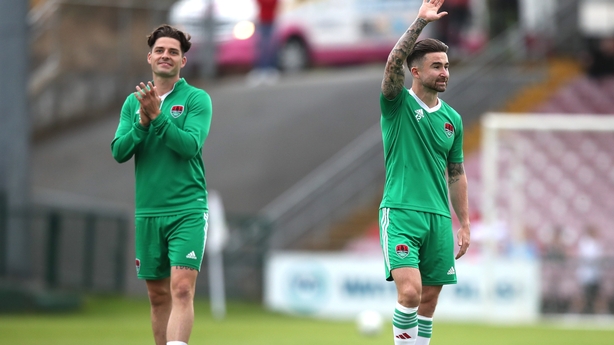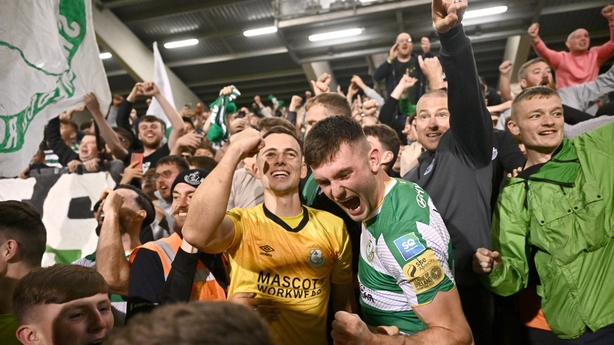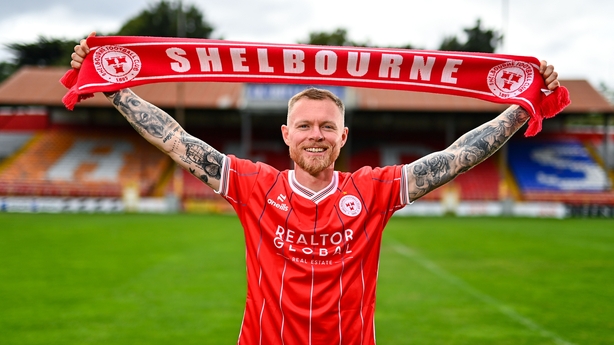In recent years, the League of Ireland has witnessed an evolution in the calibre of players that clubs are willing to sign, and with it, the wages they are prepared to pay.
This shift reflects not only an increasing ambition within the league but also the growing financial confidence that clubs have in their ability to justify these significant investments. Shelbourne's recent signings of Harry Wood and Aiden O’Brien stand as prime examples of this new era.
Wood, a very promising talent from Hull City who previously had a very successful loan spell with Damien Duff’s side, and O’Brien, with his extensive experience in English football, represent a substantial upgrade in quality for the club.
Similarly, Bohemians have secured the return of Dawson Devoy and Ross Tierney, two young players whose development at the club has already made them fan favourites.
St Patrick’s Athletic have not been left behind either, bringing in Zack Elbouzedi, Aidan Keena, and Joe Anang, all of whom have the potential to be game-changers in the league. Further afield, Galway United’s capture of seasoned professional Greg Cunningham and Cork City’s preparations for Premier Division football by signing Seani Maguire and Ruari Keating highlight the league-wide trend of attracting higher-profile players.

These signings, which would have been unthinkable a few years ago, are now becoming the norm, which in turn will raise the standard of football across the league. While the influx of talent is exciting for fans, it naturally raises questions about how clubs can justify the wages that accompany these signings.
Historically, the League of Ireland has been cautious. It had to be, especially following the financial difficulties many clubs faced when previous overspending couldn’t be justified.
However, the current landscape offers a more optimistic outlook.
One significant factor is the introduction of the UEFA Conference League, which has provided clubs with achievable rewards for success on the European stage.
The prospect of European group stage football brings with it substantial financial incentives, as Shamrock Rovers and St Pat's are finding out, that play a part in the increased expenditure on player wages.
Clubs now see this as a realistic and achievable target, encouraging them to invest in the quality needed to compete at this level.
As an optimist, I like to believe that in the future, more than one of our clubs will compete annually on the European stage. Moreover, record attendances at matches are providing clubs with additional revenue streams.
Our clubs, with their increased presence in the communities, have benefited not only from ticket sales but also from increased merchandise revenue, which has become a vital part of the financial ecosystem of football clubs.
This boost, with more eyes on the league, has a ripple effect, enabling clubs to secure more lucrative sponsorship deals.
As clubs continue to grow their fanbases and enhance their commercial operations, they find themselves in a stronger financial position to offer competitive wages to attract top talent.

Clubs have also got better with player sales. While we would like to see our clubs get bigger fees for our young players, there aren't many clubs in the Premier Division now that don’t hold a sell-on clause on the young players they have sold.
However, as with any investment, there is a fine line between ambition and financial recklessness.
The desire to push the boat out by signing top players comes with the inherent risk of overspending, a reality that is all too familiar in football leagues around the world.
English football serves as a cautionary tale, where clubs have often found themselves in financial turmoil after chasing success at all costs. In the League of Ireland, the key difference this time around is the emphasis on sustainability.
Clubs are more acutely aware of the dangers of overextending themselves financially and are, for the most part, balancing their ambition with prudence.
The recent signings, while expensive by the league’s standards, are not seen as reckless but as calculated risks that are justified by the potential rewards.There is a growing belief that the league itself is in a much stronger position than it was in previous decades.
The increased visibility and competitiveness of the league, combined with the potential financial benefits of European competition and the rise in matchday revenue, create a more sustainable environment for clubs to operate in.
This, in turn, creates the opportunity to pay these higher wages which are being offered to players.
As fans, we all want our league to be run sustainably, but the reality is that in professional football, it is rare to find a collective group of clubs that operate with complete financial restraint.

The difference this time around is that the League of Ireland is in a stronger position, both on and off the pitch with our clubs having more capable people in charge.
The rewards for success are greater, and the league finds itself in a more sustainable position to support higher wages without jeopardising its future. The recent signings by clubs like Shelbourne, Bohemians, St Patrick’s Athletic, Galway United and Cork City are a testament to this new era of ambition.
They signal that the league is on the rise, with clubs more confident than ever in their ability to compete at a higher level.
While there will always be nervousness among those who remember the financial struggles of the past, there is also a sense of optimism that this time, the risks are calculated, and the rewards are well within reach. The League of Ireland is entering an exciting chapter, where the quality of football is improving, the financial rewards are increasing and the future looks brighter than ever.
Follow the RTÉ Sport WhatsApp channel for the best news, interviews, analysis and features, as well as details of our sports coverage across all RTÉ platforms.


